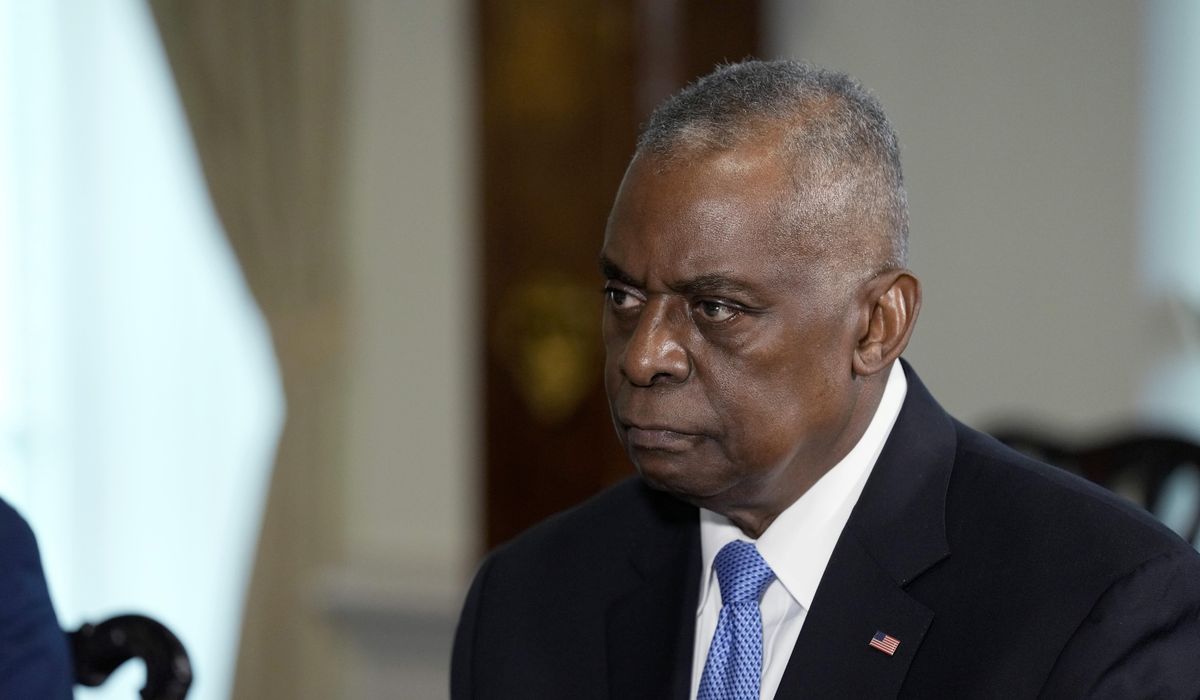


Defense Secretary Lloyd Austin returned Sunday to Walter Reed National Military Medical Center for symptoms of a bladder issue less than a month after his secret stay at that hospital sparked controversy and multiple investigations for his failure to notify President Biden or his subordinates at the Pentagon.
Mr. Austin, 70, was taken to Walter Reed by his security detail at about 2:20 p.m., according to Air Force Maj. Gen. Pat Ryder, a Pentagon spokesman.
“The Deputy Secretary of Defense and the Chairman of the Joint Chiefs of Staff have been notified. Additionally, White House and Congressional notifications have occurred,” Gen. Ryder said in a statement.
The immediate notifications of the White House, top Pentagon officials and key lawmakers this time around stands in stark contrast to Mr. Austin’s first hospital stay, which was shrouded in mystery and hidden even from the president.
Lawmakers of both parties demanded that such a lack of transparency never happen again, and Mr. Austin took personal responsibility and later apologized for the secrecy around his hospitalization.
The severity of the medical issues that sent the Pentagon chief back to the hospital on Sunday were not immediately clear.
Mr. Austin is retaining his command authority as defense secretary and brought his communications equipment for keeping in contact with civil and military leathers while at the hospital, Pentagon officials said.
“We will provide an update on Secretary Austin’s condition as soon as possible,” Gen. Ryder said.
Mr. Austin was diagnosed with prostate cancer in December and later developed complications following a “minimally invasive” procedure at the hospital to treat it. He returned to Walter Reed on Jan. 1 and for a time was in the hospital’s intensive care unit. He was released on Jan. 15.
The Defense Department took three days to notify the White House and defense officials about Mr. Austin’s hospital stay, prompting calls for his resignation from some GOP members of Congress and investigations about how the president’s senior military advisor could be away from his duties without officials noticing his absence.
Even Deputy Secretary of Defense Kathleen Hicks, the effective acting secretary of defense for two days last month, didn’t know that Mr. Austin was in the intensive care unit at Walter Reed.
On Jan. 2, Ms. Hicks was on vacation in Puerto Rico when she got an email notification that “certain authorities of the secretary of defense” were transferred to her. But, she wasn’t notified about Mr. Austin’s hospitalization until Jan. 4 — two days later.
This time, “the deputy secretary is prepared to assume the functions and duties of the secretary of defense, if required,” Gen. Ryder said in his statement Sunday.
• Mike Glenn can be reached at mglenn@washingtontimes.com.
• Ben Wolfgang can be reached at bwolfgang@washingtontimes.com.
